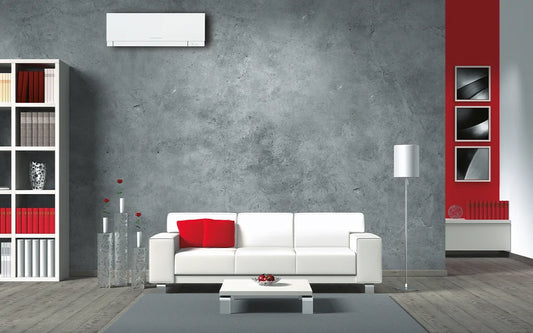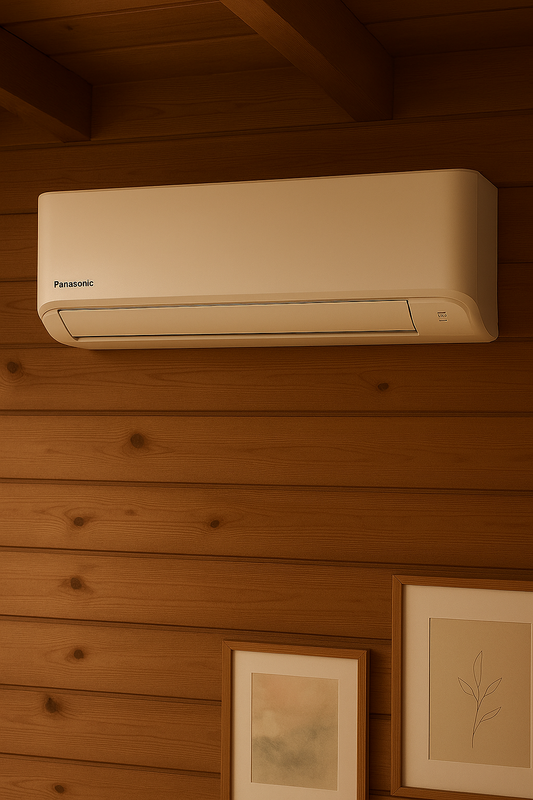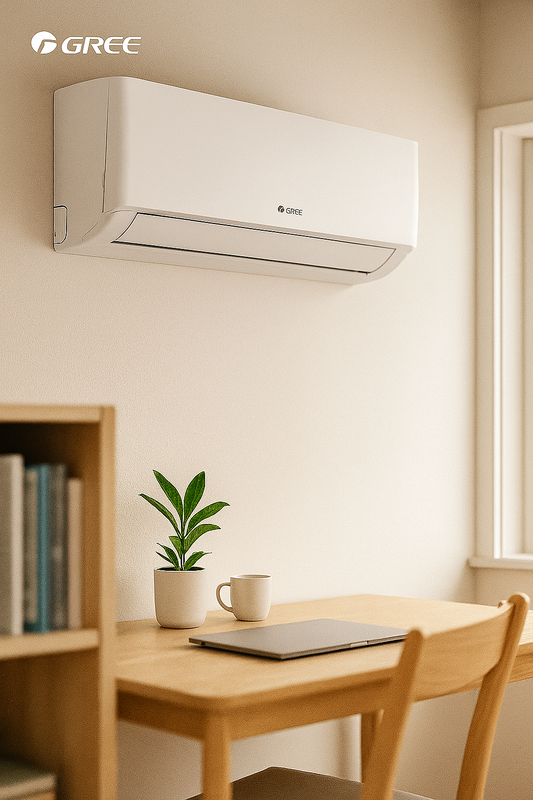Kostnad för installation av luft-vatten värmepump: En djupgående analys
Att installera en luft-vatten värmepump kan vara en klok investering för många hushåll och företag, men kostnaden för installationen kan variera beroende på flera faktorer. I denna artikel kommer vi att utforska kostnaden för att installera en luft-vatten värmepump, dess fördelar, användningsområden, relaterade tekniker och vanliga frågor kring ämnet.
Definition och bakgrund
En luft-vatten värmepump är en typ av värmepump som använder utomhusluften för att producera värme för att värma upp vatten som sedan kan användas för uppvärmning av ett hem eller en byggnad. Denna teknik utnyttjar omgivande luft och omvandlar dess energi till värmeenergi genom en kompressionsprocess.
Den bakomliggande tekniken i en luft-vatten värmepump har utvecklats under många år och har blivit alltmer effektiv och kostnadseffektiv. Genom att dra nytta av förnybara energikällor som luft kan luft-vatten värmepumpar bidra till att minska koldioxidutsläpp och energiförbrukning.
Fördelar och användningsområden
En av de främsta fördelarna med en luft-vatten värmepump är dess energieffektivitet. Genom att utnyttja omgivande luft som energikälla kan denna typ av värmepump minska energikostnaderna avsevärt jämfört med traditionella uppvärmningssystem. Dessutom kan luft-vatten värmepumpar också bidra till att minska den totala energiförbrukningen och därigenom ha en positiv miljöpåverkan.
Användningsområdena för luft-vatten värmepumpar sträcker sig från privata bostäder till kommersiella fastigheter. Dessa värmepumpar kan användas för att värma upp vatten till radiatorer, golvvärme eller för att producera varmt vatten för hushållsändamål.
Relaterade tekniker, begrepp eller variationer
Det finns flera relaterade tekniker och variationer av värmepumpar som kan vara relevanta att överväga vid installation av uppvärmningssystem. Luft-luft värmepumpar, bergvärmepumpar och sjövärmevärmepumpar är exempel på alternativa värmepumpstyper som kan vara lämpliga beroende på specifika behov och förutsättningar.
Vanliga frågor (FAQ)
- Vad är den genomsnittliga kostnaden för installation av en luft-vatten värmepump?
- Vilka faktorer påverkar kostnaden för installation?
- Vad är den förväntade livslängden för en luft-vatten värmepump?
Den genomsnittliga kostnaden för installation av en luft-vatten värmepump kan variera beroende på faktorer som storlek på systemet, installationens komplexitet och geografisk plats. Generellt sett kan kostnaden för installation ligga mellan X och Y kronor.
Faktorer som påverkar installationskostnaden inkluderar val av värmepumpsmodell, arbetskostnader för installation, behov av eventuella förberedande arbeten och eventuella tillståndskrav.
En välskött luft-vatten värmepump förväntas ha en livslängd på cirka 15-20 år, men detta kan variera beroende på användning, underhåll och kvalitet på installationen.
Sammanfattning
Att installera en luft-vatten värmepump kan vara en kostnadseffektiv och miljövänlig lösning för uppvärmning av bostäder och kommersiella fastigheter. Genom att dra nytta av omgivande luft som energikälla kan dessa värmepumpar bidra till att minska energikostnader och klimatpåverkan.
Det är viktigt att noggrant överväga kostnader, fördelar och eventuella tillståndskrav innan man investerar i installation av en luft-vatten värmepump.
Installation Cost Breakdown
When considering the installation cost of an air-to-water heat pump, it's essential to break down the expenses to understand the investment better. The installation cost typically includes the price of the heat pump unit, labor costs for installation, any necessary preparatory work, and potential additional materials or permits.
Factors Influencing Installation Costs
Several factors can influence the total installation cost of an air-to-water heat pump system. These factors may include the size and capacity of the heat pump, the complexity of the installation process, the need for any modifications to the existing heating system, and the geographical location of the property. It's crucial to consider these factors when estimating the overall installation expenses.
Case Study: Installation Cost Comparison
In a comparative analysis of air-to-water heat pump installations, it was found that the total cost can vary significantly based on different scenarios. For instance, a larger property with more extensive heating requirements may incur higher installation costs compared to a smaller residential property. By examining specific case studies, property owners can gain insights into the potential cost implications of installing an air-to-water heat pump.
Energy Savings and Return on Investment
While the initial installation cost is an important consideration, it's equally essential to evaluate the long-term energy savings and potential return on investment (ROI) associated with an air-to-water heat pump. By calculating the projected energy efficiency and comparing it to traditional heating systems, property owners can determine the financial benefits of investing in this technology over the long term.
Environmental Impact and Incentives
Beyond the financial aspects, installing an air-to-water heat pump can have a positive environmental impact by reducing carbon emissions and overall energy consumption. Additionally, property owners may be eligible for various incentives, rebates, or tax credits offered by local or national authorities for adopting energy-efficient heating solutions. Understanding the potential environmental benefits and available incentives can provide a comprehensive view of the value of installing an air-to-water heat pump.
Conclusion
As the demand for sustainable heating solutions continues to grow, the installation cost of air-to-water heat pumps remains a critical consideration for property owners. By assessing the various cost factors, potential energy savings, environmental impact, and available incentives, individuals and businesses can make informed decisions regarding the installation of air-to-water heat pump systems.
Energy Efficiency and Performance
One of the key aspects to consider when evaluating the installation cost of an air-to-water heat pump is its energy efficiency and performance. Assessing the seasonal performance factor (SPF) and coefficient of performance (COP) can provide insights into the expected heating efficiency and overall performance of the system. Understanding these metrics can help property owners gauge the long-term value of the investment in terms of energy savings.
Maintenance Requirements and Costs
In addition to the initial installation cost, it's important to consider the ongoing maintenance requirements and associated costs for an air-to-water heat pump. Regular maintenance, filter replacements, and potential repairs are essential to ensure the optimal functioning of the system. By factoring in the maintenance costs, property owners can gain a comprehensive understanding of the total ownership expenses over the system's lifespan.
Local Regulations and Permitting
Local regulations and permitting processes can significantly impact the installation cost of an air-to-water heat pump. Depending on the region, property owners may need to obtain permits, adhere to specific installation guidelines, or comply with zoning requirements. Understanding the regulatory landscape and associated costs is crucial for accurately estimating the total installation expenses.
Technology Advancements and Innovations
Advancements in air-to-water heat pump technology and innovations in the heating industry can influence the installation cost. Newer models may offer enhanced features, improved energy efficiency, and advanced controls, which can affect the upfront investment. Exploring the latest technological developments and their potential impact on installation costs can assist property owners in making informed decisions.
Case Study: Return on Investment Analysis
Conducting a comprehensive return on investment (ROI) analysis based on real-world case studies can shed light on the financial implications of installing an air-to-water heat pump. By examining the upfront installation cost, projected energy savings, maintenance expenses, and potential incentives, property owners can assess the overall ROI and make financially sound choices regarding heating system upgrades.



